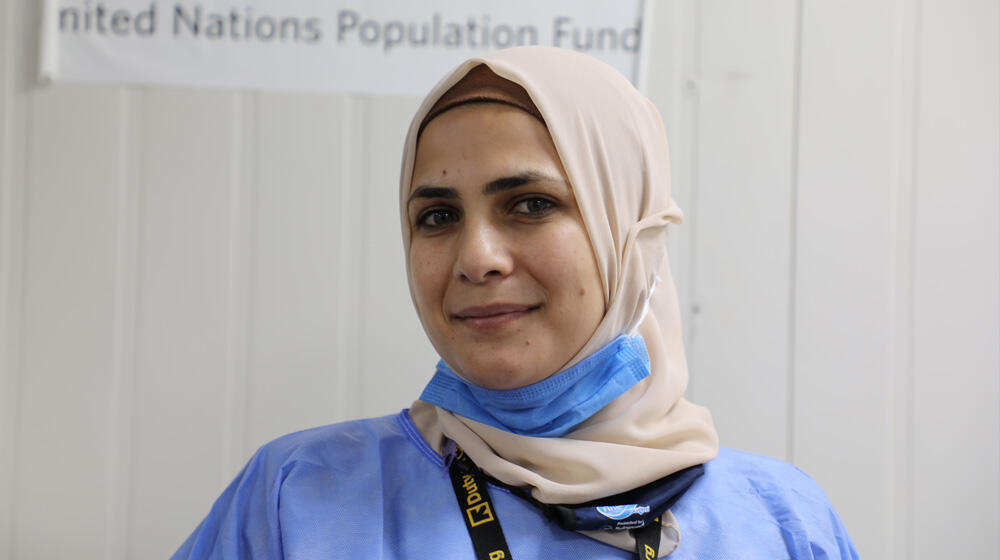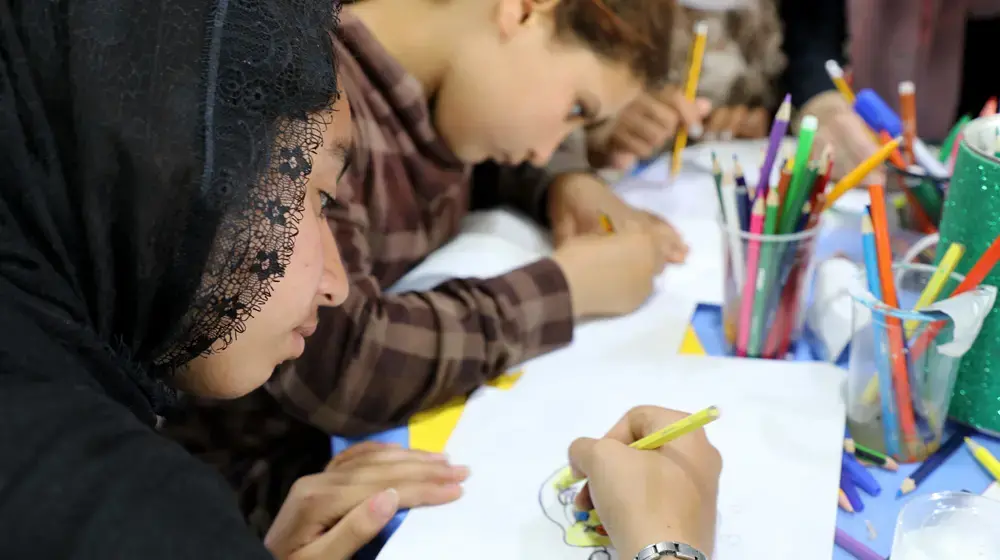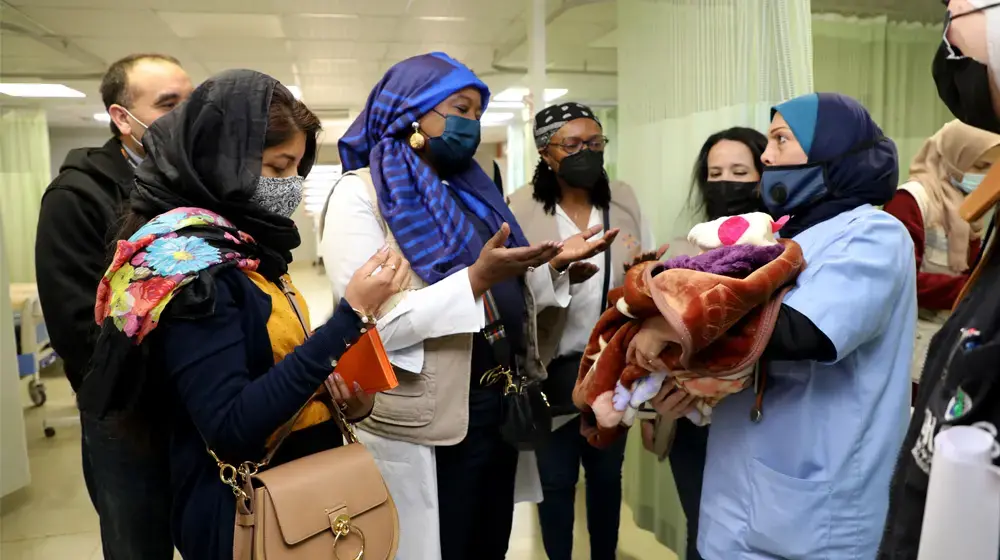Without a doubt, working in the health sector can be challenging even in normal circumstances, since there is no room for error. Nonetheless, challenges are magnified when work involves catering for refugees in camp settings, due to the limited resources and difficult working conditions.
Midwifery is not an exception to the rule, but every challenge is viewed as an opportunity for learning and gaining experience. Hence, we introduce our story’s “champion”, Rahma.
Rahma Al Omari, is a certified midwife who graduated from Rafida College of Nursing, Midwifery and Allied Health in 2015. In 2018, she worked at UNFPA- Jordan’s clinic in Azraq Syrian refugee camp.
“Despite the challenges I faced at the beginning of my career, I was equally blessed to have such an opportunity to learn,” She expressed. She then added, “I was lucky to have such patient beneficiaries, who understood that I had very little experience. In return, I worked to the best of my ability and did all it took to learn and gain more knowledge and experience, in order to provide them with high-quality services”.
Indeed, Rahma contributes her success to three things: paying close attention, paying close attention and paying close attention to the beneficiaries to better understand their needs on one hand, and to provide them with the best service on the other hand. “Moreover, this builds mutual trust amongst us”, she highlighted.
“A midwife is the protector, mother and caregiver to both the mother and child”, this is how Rahma defines midwifery.
During our interview, Rahma opened up about her work during the comprehensive lockdown period, at the onset of COVID-19 pandemic’s breakout that took the world by storm. For two weeks, she was the only midwife who reported to work at a camp of 50,000 people, more than half of whom are women.
As to the challenges, Rahma indicated that “during the lockdown, and due to the suspension of transportation, I had to walk for almost 2 Km on daily basis. I used to carry my 9-month-old baby girl, while holding the hand of my 3-year-old-daughter and walk her to a home-based nursery. There, they would take care of her until I returned to pick her up once my shift was over”.
“When I sense satisfaction in the eyes of the beneficiaries we tend to, I realize how much they are in dire need of the services we provide, I then forget all about the challenges that I face.”, she concluded.





